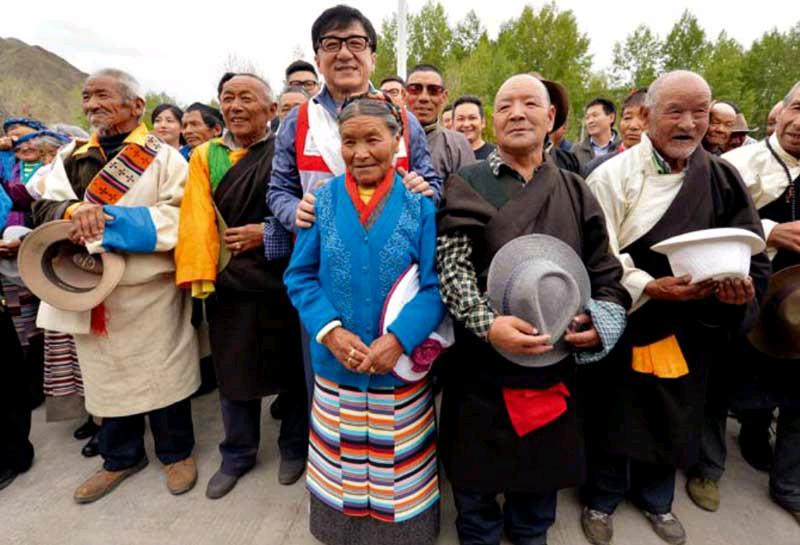Jackie Chan:Rumble in Hollywood
2016-11-30byRuYuan
by+Ru+Yuan
Arguably the best-known working Chinese movie star, Jackie Chan will accept an honorary Oscar this November for his impressive career in film. The first Chinese person to receive the Academys Governors Award, Chan spent decades acting in more than 30 Hong Kong martial arts films, as well as several he wrote, directed or produced, “stunning spectators with dazzling athleticism, innovative stunt work and boundless charisma,”according to the Academy. In his 50-plus years in the film industry, Chan has been involved in more than 100 films. Bruce Lee might have opened the door to Hollywood for Chinese actors, but Jackie Chan finished the race he started, conquering Hollywood with his spectacularly unique style.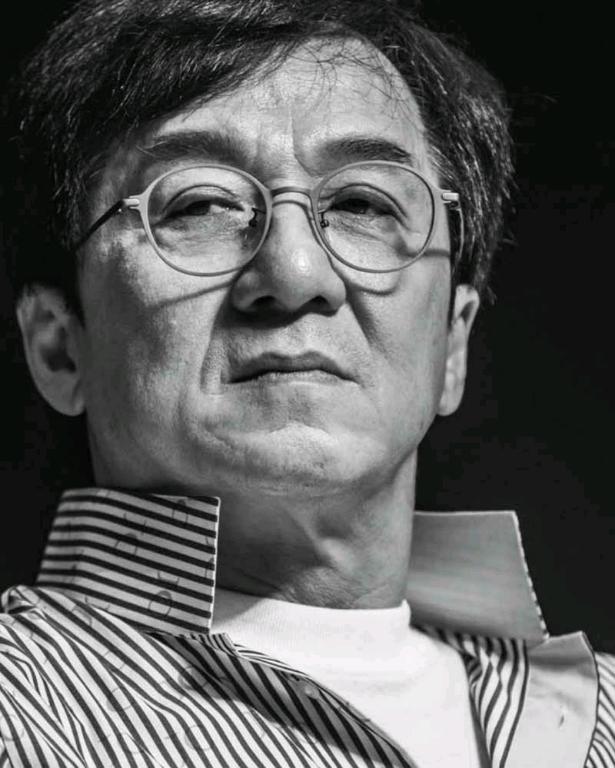
A New Style
Born in Hong Kong in 1954 as Chan Kong-sang, Chan studied at the China Drama Academy, a local Peking Opera school where he began learning martial arts and acrobatics at the age of six. The talented child soon became one of the schools standouts and began to appear in small roles.
Jackie Chan appeared briefly in Bruce Lees most famous film, Enter the Dragon, as a prison thug, just before Lees death in 1973. Chan was included with a handful of Hong Kong stars who were hyped as Lees successors. However, his unimpressive fivefoot-nine figure made him seem miniscule compared with most muscle-bound action film actors at that time. From the very beginning, Chan knew that he had to develop his own style in order to stand out.
Chans major breakthrough was the incorporation of comic elements into action films. His work injected new life into the genre, and soon Chan found more room to explore his expertise in martial arts and acrobatics. The comedic elements successfully set Chan apart from other kung fu actors. “When Bruce Lee punched someone, he just kept doing like it didnt hurt,” Chan once said in an interview. “But when I hit someone, I shake my hand and go, ‘Ow!”
Chans comedic kung fu genre features acrobatic fighting style, comic timing, usage of improvised weapons, and breathtaking stunts. The storylines of his films also veered far from traditional martial arts movies. For example, in his 1978 film Snake in the Eagles Shadow, instead of learning fighting from either of the title animals, Chan is inspired by a cat.
Thanks to the release of Drunken Master in 1978, the new genre quickly became popular. In the film, a young kung fu student learns a style in which the fighter appears to be drunk. Grossing nearly 2.5 times that of Snake in the Eagles Shadow, the film became an overnight sensation and box office smash in Asia as well as art houses in the United States. The film even enjoyed a restored American re-release.
Since then, comic kung fu has been Chans signature. For about four decades, almost all Chans action films, including Project A and Armor of God in the 1980s, Rumble in Bronx and Mr. Nice Guy in the 1990s, and Rob-B-Hood and Rush Hour trilogy in the 21st Century, have featured this style.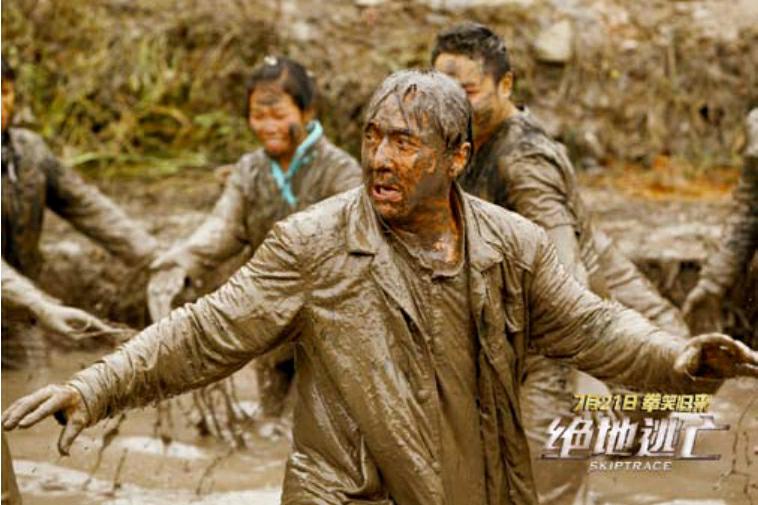
East Meets West
Now one of the internationally recognized Chinese actors, Chan broke into Hollywood in 1995, when Rumble in Bronx was released in the United States and grossed US$10 million in its opening weekend. The film finished as the sixth best-earning film in North America that year, making Chan an A-list actor. Soon, he was cast in big-budget Hollywood productions such as the Rush Hour franchise and Shanghai Noon.
Analysts point out that Chans unique style, international cast, light-hearted plots, and self-performed stunts explain his success in the West. Western audiences appreciate his death-defying stunts performed without special effects or stunt doubles, such as a jump from a helicopter before it explodes, a 21-story slide down a skyscraper, roller skating behind cars, and a clock tower drop.
Because of Chans commercial success in the West, he began to work more with Hollywood in the late 1990s. However, he eventually became frustrated with the industry over the limited range of roles and lack of control over the filmmaking process. “Sometimes, I felt the action style was too Americanized, and I didnt understand American humor,” he once remarked in an interview with U.S. media. Also, Hollywoods safety regulations seem smothering.“I know they want to make sure that Im safe when I do my stunts, but sometimes it would be a simple thing, but they make it into a huge ordeal,” he explained.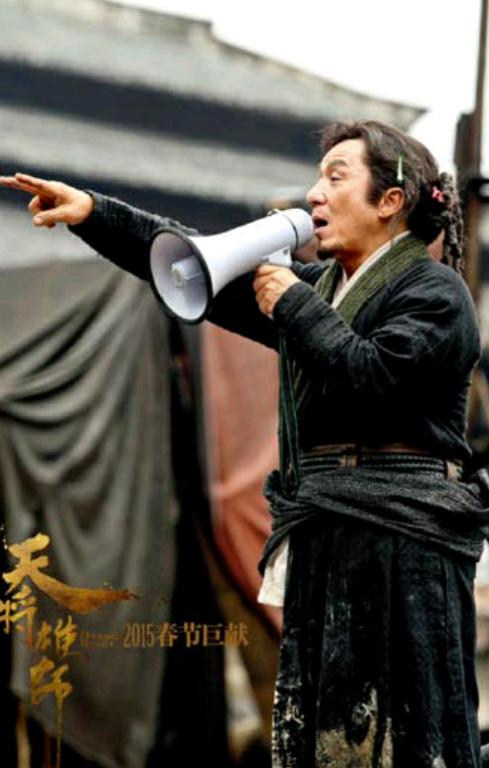
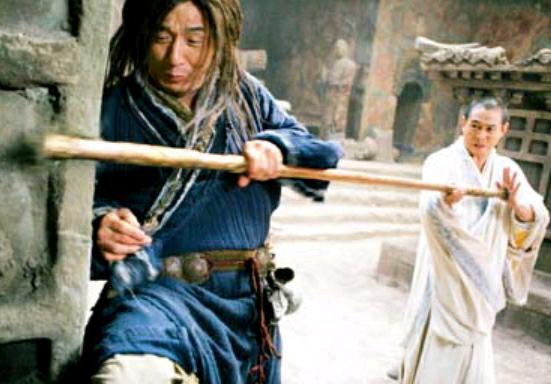
Chan began to focus more on his homeland in the early 21st Century. Not satisfied to join Hollywoods crowded ranks as another face, Chan longed to entertain spectators on both sides of the Pacific. “Sometimes, I wish I could strike a balance,” he remarked.
For many years, Chan has been accelerating convergence between the Hollywood and Chinese entertainment industries. His latest effort was a 2015 historical action drama—a swords-and-sandals, Eastmeets-West epic titled Dragon Blade. In the movie, Chan plays the commander of the Protection Squad of the Western Regions(a Chinese historical term referring to what is now Chinas Xinjiang and Central Asia) during the Han Dynasty (202 B.C.–220 A.D.), who furiously fights Roman warriors played by John Cusack and Adrien Brody.
Thinking Bigger
Chinese characters appeared in Hollywood movies as early as the 1930s, with the emergences of Fu Manchu and Charlie Chan. But at that time, most portrayals were negative. Thanks to better communication and understanding, Western spectators now have more positive feelings of Chinese characters in movies in recent years. However, despite evolving roles, the Chinese films most embraced by Western viewers usually involve kung fu.
Chan hopes that foreign audiences will embrace a wider variety of Chinese movies, but he knows that such a mission is no easy task. “I am conducting experiments and changing styles in recent years,” he revealed. “And I hope that eventually, when spectators think of me, they dont just think of action-comedy.”
In recent years, Chan has donated most of his free time to philanthropy and public work. He established the Jackie Chan Charitable Foundation in 1988 and Dragons Heart Foundation in 2004, respectively. While the Jackie Chan Charitable Foundation offers scholarship and help to young people from Hong Kong, Dragons Heart Foundation places focus on the urgent needs of children and the elderly in remote areas of the Chinese mainland. Through these organizations, Chan has supported youth sports activities in Hong Kong, built 27 schools in impoverished areas in the Chinese mainland, and provided clothing, wheelchairs and other necessities for poverty-stricken seniors.
Chan is also a UNICEF Goodwill Ambassador, and has championed charitable work and cause. He campaigned for animal conservation and promoted disaster relief efforts to help victims of earthquakes and floods in the Chinese mainland as well as those hurt by the 2004 Indian Ocean Tsunami.
“I could retire and spend every day messing around,” he said. “But I want to do good things with the years I have left: help people and spend my money on good things. Thats the most important thing.”